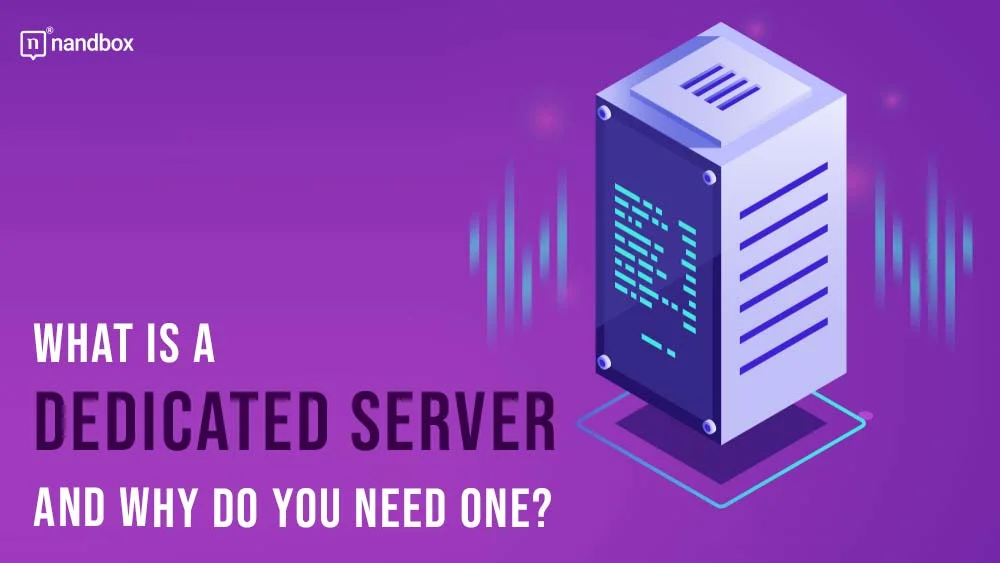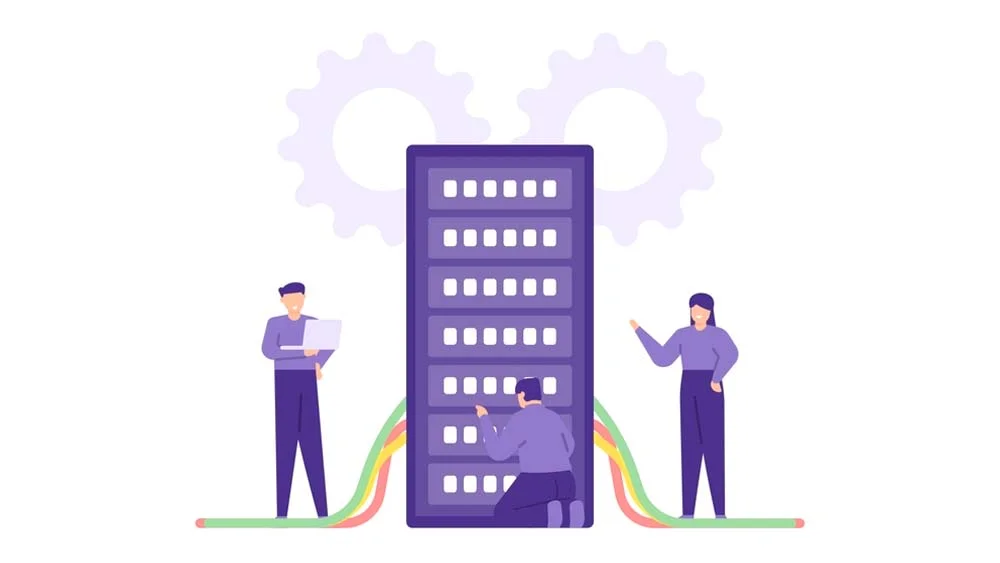A dedicated server is a type of hosting service that provides you with a physical server that is exclusively yours. Unlike shared hosting or VPS hosting, where you share resources with other users, it gives you full control and access to the server’s hardware and software. This means you can customize the server to suit your specific needs and preferences, such as choosing the operating system, installing applications, configuring security settings, and more.
Why do you need a dedicated server?
There are many reasons why you might need a dedicated server for your website or online project. Some of the main benefits of a dedicated server are:
- Performance: It can handle high traffic, complex applications, and intensive workloads without compromising speed or reliability. You can also optimize the server’s performance by adjusting the CPU, RAM, disk space, and bandwidth according to your requirements.
- Security: It offers a higher level of security than other hosting options, as you are the only one who can access the server. You can also implement your own security measures, such as firewalls, encryption, antivirus, and backups, to protect your data and prevent unauthorized access.
- Flexibility: It allows you to customize the server as you wish. You can install any software or application you need, including application servers for complex business logic or web applications. You can configure the server settings, update the server whenever you want, and scale up or down the server resources as your business grows or changes.
- Control: It gives you full control over the server and its management. You can choose the server location, the hardware specifications, the operating system, and the control panel that you prefer. You can also monitor the server’s performance, troubleshoot issues, and make changes as needed.
For what projects do you need a dedicated server?
It is suitable for a variety of projects that require high performance, security, flexibility, and control. Some examples of projects that can benefit from a dedicated server are:
- E-commerce websites: If you run an online store that sells products or services, you need a dedicated server to ensure fast loading times, secure transactions, and smooth customer experience. It can also help you handle peak traffic, process large orders, and store sensitive data.
- Gaming servers: If you host a multiplayer online game, you need a dedicated server to provide a stable and lag-free gaming environment for your players. It can also support high-resolution graphics, complex game mechanics, and large player communities.
- Streaming platforms: If you offer live or on-demand video or audio streaming, you need a dedicated server to deliver high-quality content to your viewers or listeners. It can also handle high bandwidth consumption, multiple formats, and interactive features.
- Big data analytics: If you work with large amounts of data that need to be collected, processed, and analyzed, you need a dedicated server to perform these tasks efficiently and accurately. It can also support advanced tools, such as artificial intelligence, machine learning, and data visualization.
What are the main characteristics of a dedicated server?
It has several characteristics that distinguish it from other hosting options. Some of the main characteristics of a dedicated server are:
- Hardware: It consists of a physical machine that has its own CPU, RAM, disk space, and network connection. The hardware specifications of a dedicated server vary depending on the provider and the plan that you choose. You can also upgrade or downgrade the hardware components as needed.
- Software: It allows you to choose the operating system and the control panel that you want to use. You can also install any software or application that you need, such as web servers, databases, frameworks, and more. You can also update the software as often as you want.
- Management: It can be either managed or unmanaged by the provider. A managed dedicated server means that the provider takes care of the server maintenance, security, and updates, while you focus on your website or project. An unmanaged dedicated server means that you are responsible for the server administration, configuration, and troubleshooting, while the provider only provides the hardware and the network.
- Pricing: A dedicated server is usually more expensive than other hosting options, as you pay for the entire server and its resources. However, the price of a dedicated server depends on several factors, such as the hardware specifications, the software options, the management level, and the provider. You can also save money by choosing a long-term contract or a special offer.
Conclusion: How to choose a dedicated server provider?
Choosing a dedicated server provider is an important decision that can affect the success of your website or project. Therefore, you should consider several aspects before making your choice, such as:
- Reputation: You should choose a provider that has a good reputation in the market, with positive reviews, testimonials, and ratings from other customers. You should also check the provider’s history, experience, and awards in the industry.
- Support: You should choose a provider that offers reliable and responsive customer support, 24/7, via phone, email, chat, or ticket. You should also check the provider’s knowledge base, FAQ, and tutorials for helpful information and guidance.
- Features: You should choose a provider that offers a range of features and options that suit your needs and preferences, such as hardware specifications, software choices, management levels, server locations, and more. You should also check the provider’s uptime guarantee, security measures, backup solutions, and scalability options.
- Price: You should choose a provider that offers a fair and transparent price for the dedicated server that you want, without any hidden fees or charges. You should also compare the price with the value and quality that you get, and look for discounts, promotions, or coupons that can help you save money.
A dedicated server provider
One example of a provider that meets these criteria is Deltahost. Deltahost is a leading provider of dedicated servers, VPS hosting, and colocation services, with over 10 years of experience in the market. Deltahost offers:
- High-performance dedicated servers with Intel Xeon processors, DDR4 RAM, SSD or HDD drives, and up to 10 Gbps network speed.
- Flexible software options with a choice of Linux or Windows operating systems, and various control panels, such as cPanel, Plesk, Webuzo, and more.
- Full root access and control over the server, with the option to choose between managed or unmanaged dedicated servers, depending on your level of expertise and preference.
- 24/7 customer support via phone, email, chat, or ticket, with a team of professional and friendly technicians who can assist you with any issue or question.
- 99.9% uptime guarantee with a network of data centers located in Europe, North America, and Asia, with redundant power supply, cooling systems, and security measures.
- Affordable and transparent pricing with no setup fees, no contracts, and no hidden charges. You can also benefit from special offers, discounts, and coupons that can help you get the best deal for your dedicated server.
If you are looking for a dedicated server that can provide you with high performance, security, flexibility, and control, you should consider Deltahost as your provider. You can visit their website to learn more about their services, features, and prices, and to order your dedicated server today.







